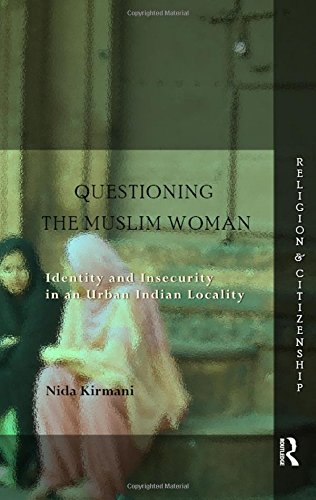

Most ebook files are in PDF format, so you can easily read them using various software such as Foxit Reader or directly on the Google Chrome browser.
Some ebook files are released by publishers in other formats such as .awz, .mobi, .epub, .fb2, etc. You may need to install specific software to read these formats on mobile/PC, such as Calibre.
Please read the tutorial at this link: https://ebookbell.com/faq
We offer FREE conversion to the popular formats you request; however, this may take some time. Therefore, right after payment, please email us, and we will try to provide the service as quickly as possible.
For some exceptional file formats or broken links (if any), please refrain from opening any disputes. Instead, email us first, and we will try to assist within a maximum of 6 hours.
EbookBell Team

4.4
72 reviewsThe marginalisation of Muslims in India has recently been the subject of heated public debate. In these discussions, however, Muslim women are often either overlooked or treated as a homogenous group with a common set of interests. Focusing on the narratives of women living in a predominantly Muslim colony in South Delhi, this book attempts to demonstrate the complexity of their lives and the multiple levels of insecurity they face. Unlike other studies on Indian Muslims that focus on Islam as a defining factor, this book highlights the ways in which religious identity intersects with other identities including class/status, regional affiliation and gender.
The author also sheds light on the impact of such events as the Babri Masjid demolition in 1992 and the subsequent riots, the Gujarat communal carnage in 2002, and the anti-Sikh violence in New Delhi in 1984, along with the rise of Hindutva, and growing Islamophobia experienced worldwide in the post-9/11 period ― on the articulation of identities at the local level and increasing religion-based spatial segregation in Indian cities. The study highlights how these incidents combine in different ways to increase the sense of marginalisation experienced by Muslims at the level of the locality.
Understanding the need to look beyond preconceived religious categories, this book will serve as essential reading for those interested in sociology, anthropology, gender, religious and urban studies, as well as policymakers and organisations concerned with issues related to religious minorities in India.